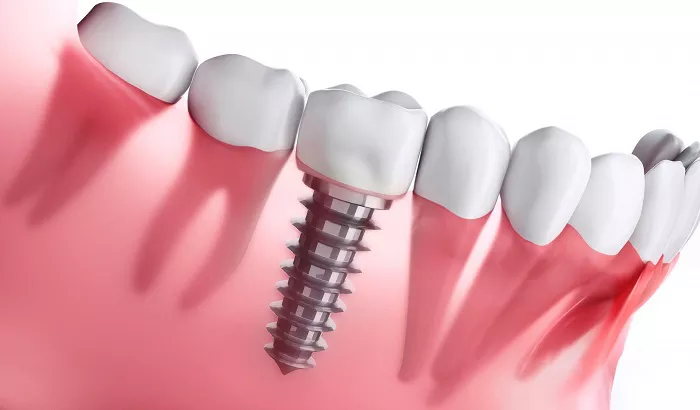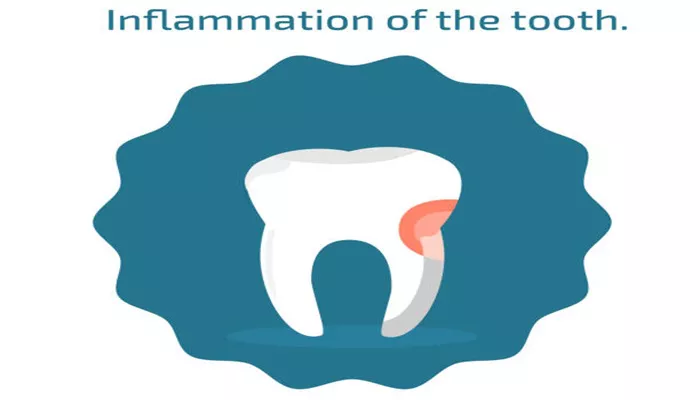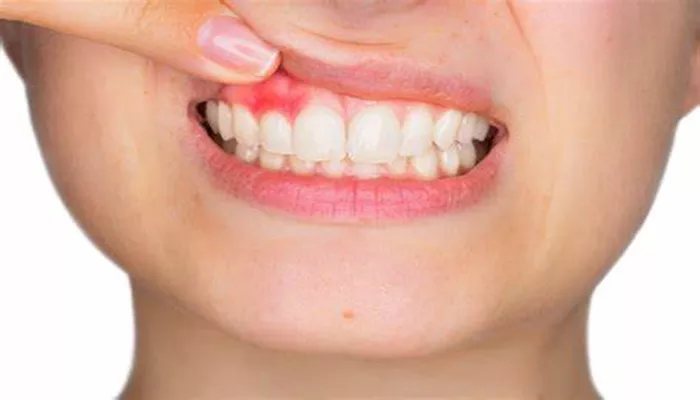Gum Inflammation symptoms
Common Symptoms of Gum Inflammation
Bleeding Gums: One of the most noticeable signs of gum inflammation is bleeding during brushing or flossing. Healthy gums should not bleed, so this symptom is often an early indicator of gingivitis.
Red and Swollen Gums: Inflamed gums typically appear red and swollen, contrasting with the healthy pink color of normal gums. This redness indicates increased blood flow due to inflammation.
Tenderness: Affected gums may feel tender or painful, especially when pressure is applied during brushing or eating.
Bad Breath: Persistent bad breath (halitosis) can arise from the buildup of plaque and bacteria in the mouth, leading to gum inflammation.
Receding Gums: As inflammation progresses, gums may begin to pull away from the teeth, creating pockets that can harbor bacteria and exacerbate infection.
Pus Formation: In more advanced stages, pus may develop between the teeth and gums, indicating a bacterial infection that requires immediate dental attention.
Changes in Tooth Position: Gum disease can lead to shifts in tooth alignment or loose teeth as the supporting structures become compromised.
Sensitivity: Increased sensitivity in teeth can occur due to exposed roots from receding gums, making it uncomfortable to consume hot or cold foods and beverages.
Gum Inflammation causes
Gum inflammation, commonly referred to as gingivitis, is a prevalent condition that can arise from various factors. Understanding the underlying causes is crucial for effective prevention and treatment. Below are the primary causes of gum inflammation:
1. Bacterial Plaque Accumulation
The most significant contributor to gum inflammation is the accumulation of bacterial plaque on the teeth. This sticky film forms when food particles and bacteria combine, leading to irritation of the gum tissue. If not removed through proper oral hygiene practices, plaque can harden into tartar, exacerbating inflammation and potentially leading to more severe conditions like periodontitis.
2. Poor Oral Hygiene
Inadequate brushing and flossing allow plaque to build up, which directly contributes to gingivitis. Incorrect brushing techniques or neglecting to floss can also cause gum irritation and swelling. Regular dental check-ups and cleanings are essential for maintaining good oral health and preventing inflammation.
3. Hormonal Changes
Hormonal fluctuations during puberty, menstruation, pregnancy, and menopause can increase gum sensitivity and blood flow, making gums more prone to inflammation. These changes can cause the gums to react more aggressively to plaque buildup.
4. Medical Conditions
Certain systemic diseases such as diabetes, cancer, and autoimmune disorders can compromise immune function, increasing susceptibility to gum disease. Additionally, conditions that cause dry mouth or affect saliva production can lead to an increased risk of plaque accumulation.
5. Nutritional Deficiencies
A lack of essential vitamins, particularly Vitamin C (which can lead to scurvy), Vitamin D, and Vitamin B12, can impair gum health and contribute to inflammation. Proper nutrition is vital for maintaining healthy gums.
6. Tobacco Use
Smoking or using other tobacco products significantly increases the risk of gum disease by impairing blood flow to the gums and reducing their ability to heal. Tobacco users are more likely to develop severe forms of gum disease.
7. Dental Appliances
New dental appliances such as braces or dentures may irritate the gums during the adjustment period. If these appliances do not fit properly, they can cause chronic irritation and inflammation.
8. Allergic Reactions
Sensitivity or allergic reactions to certain ingredients in toothpaste or mouthwash can lead to gum inflammation. It’s essential for individuals experiencing persistent gum issues to evaluate their oral care products.
9. Food Particles
Food that becomes lodged between teeth can irritate the gums if not cleaned out promptly. Regular flossing helps prevent this issue by removing trapped particles before they cause inflammation.
10. Stress
Chronic stress can negatively impact immune function, making it harder for the body to fight off infections, including those affecting the gums. Managing stress through relaxation techniques may help improve overall oral health.
Gum Inflammation treatment
To effectively treat inflammation of the gums, a combination of home remedies, good oral hygiene practices, and, if necessary, professional dental care can be employed. Here’s a comprehensive overview of treatment options:
Home Remedies
1. Salt Water Rinses:
Rinsing with a salt water solution can help reduce bacteria and soothe inflamed gums. Mix 1 teaspoon of salt in a cup of warm water and rinse your mouth for several seconds, ideally twice daily.
2. Compresses:
Applying warm or cold compresses can alleviate pain and swelling. Use a warm cloth on the outside of your mouth for about 5 minutes, followed by a cold compress for similar durations.
3. Hydrogen Peroxide Rinse:
Mix equal parts of 3% hydrogen peroxide and water, swish it in your mouth for about 30 seconds, then spit it out. This can help reduce inflammation and kill germs.
4. Turmeric Paste:
Turmeric has anti-inflammatory properties. Create a paste with turmeric powder and water, apply it to your gums for about 5-10 minutes, then rinse off.
5. Tea Tree Oil:
Known for its antibacterial properties, tea tree oil can be diluted in water and used as a mouthwash to help treat inflamed gums.
6. Over-the-Counter Pain Relievers:
Non-prescription pain relievers such as ibuprofen or acetaminophen can provide temporary relief from gum pain.
Oral Hygiene Practices
1. Gentle Brushing:
Use a soft-bristled toothbrush and avoid vigorous brushing to prevent further irritation of the gums. Consider using an electric toothbrush designed for gum care.
2. Flossing:
Floss gently to remove food particles between teeth without damaging the gum tissue. Regular flossing helps maintain gum health.
3. Anti-Gingivitis Toothpaste:
Using toothpaste specifically formulated to combat gingivitis can promote healthier gums and reduce inflammation over time.
4. Nutritional Support:
Incorporate foods rich in Vitamin C and calcium into your diet to support gum health and healing.
Professional Treatments
If home remedies do not alleviate symptoms within two weeks or if the inflammation is severe, consult a dentist. Possible professional treatments include:
Scaling and Root Planing: A deep cleaning procedure that removes plaque and tartar from below the gum line.
Prescription Mouth Rinses or Antibiotics: For more severe cases, dentists may prescribe medicated rinses or antibiotics to combat infection.
Surgery: In advanced cases of gum disease, surgical intervention may be necessary.



